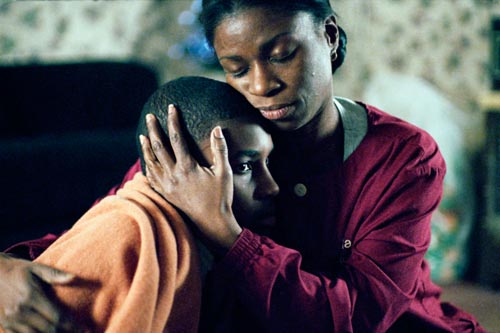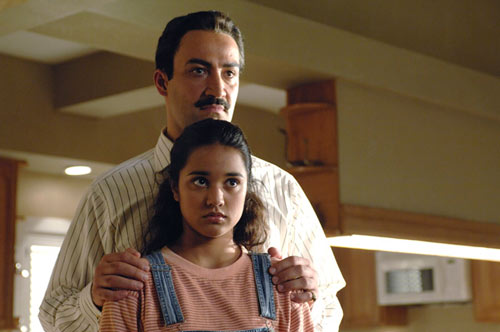
The early criticism of Oliver Stone's W. has centered around its lack of ideas, and indeed it's a veritable void, another entry in a catalog of fictional films about the Iraq war that haven't benefited from time and reflection.
It is the funniest of those films, and seems the least angry, but it doesn't function as commentary or insight, and more strikingly it doesn't function as a character study, even a fictional one. While the performances -- by Josh Brolin, Elizabeth Banks, Richard Dreyfuss, Scott Glenn, Thandie Newton, and others -- are enjoyable to watch, it's hard to imagine this Condoleezza Rice sharing a scene with this George H. W. Bush. She's in a broad comedy, but he stepped out of an earnest TV melodrama about fathers and sons. They don't share a scene, but the glue between them is W himself whose outlines are left hazy so as to coerce the film's disparate modes into coexistence. On the outside, he's a face-feeding, shallow-thinking, attention-deficit-suffering plunger. On the inside, well that's anybody's guess.
Screenwriter Stanley Weiser seems to have assembled the script from notecards containing memorable phrases from recent American history. The greatest hits. "Fool me once ... can't get fooled again." "Slam dunk." "We know where [the WMD's] are. They're in the area around Tikrit and Baghdad and east, west, south and north somewhat." He hasn't put the quotations where they belong in history; he's scattered them into the story like he's playing a parlor game, a cute corpse, not terribly exquisite. In this film, Rumsfeld makes his claims about the location of the WMD's not on TV but in the war room with Bush, Powell, Cheney, Franks, et. al. Instead of waving his hands, he waves a laser pointer.
These aren't factual errors; they're a deliberately ahistorical juggling of familiar iconography, and yet this shuffling presumes little difference between how these people talked to each other and how they talked to the public, which is wrong, dead wrong, maybe even fundamentally disqualifying. Would any general tasked with finding the WMD's sit quietly across the table from someone who told him he knew where they were? It's odd enough that George Stephanopoulos did it, but TV lights do strange things to people.









